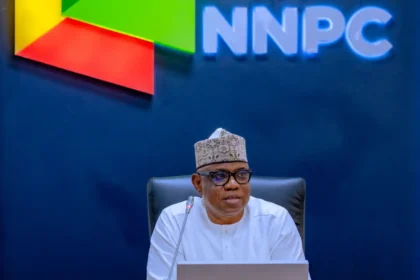As rising floodwaters swallow homes, farms, and livelihoods across parts of Nigeria, victims in Gombe, Ogun, and Anambra say they’ve been left with little more than empty promises and in some cases, just a few packs of noodles.
TheFolioPost visited several flood-hit communities and uncovered what residents are calling a disturbing pattern of inadequate and poorly managed disaster relief, despite repeated government assurances.
In Gombe State, residents of Bajoga, where over 200 households were displaced after last week’s downpour, told a grim story.
“They came with cameras, took pictures of our destroyed homes, gave us a carton of noodles and left,” said Aisha Abdulkadir, a mother of four. “We haven’t seen them since.”
Community leaders confirmed that aside from a few bags of rice and cartons of dry food handed out by local officials, no medical aid, temporary shelter, or clean water supply has been provided. Meanwhile, children and the elderly are reportedly falling ill due to exposure and unsanitary conditions.
In Ogun State, where floods submerged parts of Ifo and Abeokuta South, residents say aid distribution has been politicized.
“Only those who ‘know someone’ got anything. We are sleeping in classrooms, no mattresses, no food, no help,” said Samuel Olabode, a displaced trader. “One government official told us to be patient — but we’ve been here for a week.”
Anambra State tells a similar story. In Umueze Anam, Anambra West LGA, where flash floods wiped out roads and farmlands, aid is either delayed or mismanaged.
“They brought relief items but we were told to come back the next day. By then, most of the goods had vanished,” said Obinna Okafor, a local youth leader. “They say it’s government relief, but we suspect it was shared among political thugs.”
Photos from the affected areas show families sleeping on bare floors, destroyed school buildings serving as emergency shelters, and murky water still seeping into homes. A pregnant woman in one of the makeshift camps told DailyTimesNGR she hadn’t seen a doctor since the flood hit.
Aid or PR?
Several NGOs and independent observers have criticized what they describe as a “photo-op culture” among government agencies showing up for visibility with minimal actual support.
“Disaster response in Nigeria often ends with social media posts,” said environmental activist Zainab Shuaibu. “Relief is not about optics it’s about real help.”
So far, there has been no official response from the National Emergency Management Agency (NEMA) regarding the specific allegations, but the agency had earlier said it was “mobilizing resources and partners” for relief.
For many victims, the damage has been done — both by water and by a system that promised protection but delivered only noodles.





